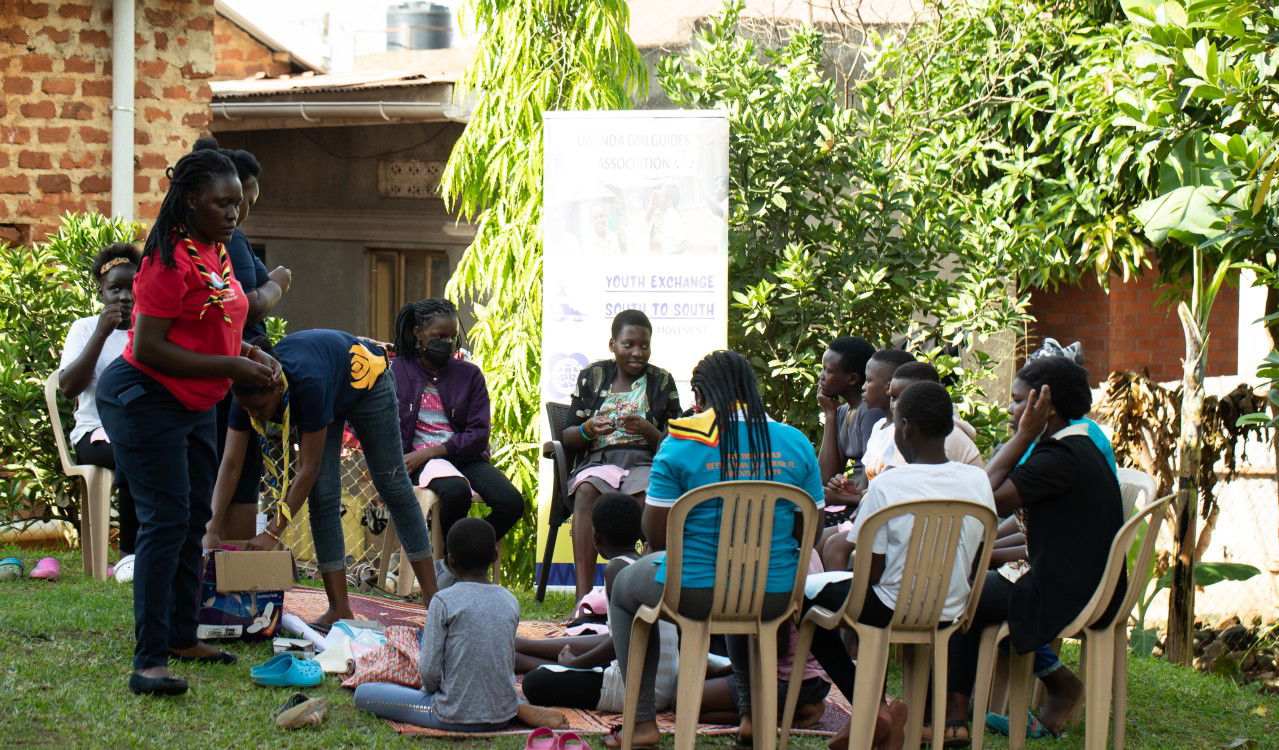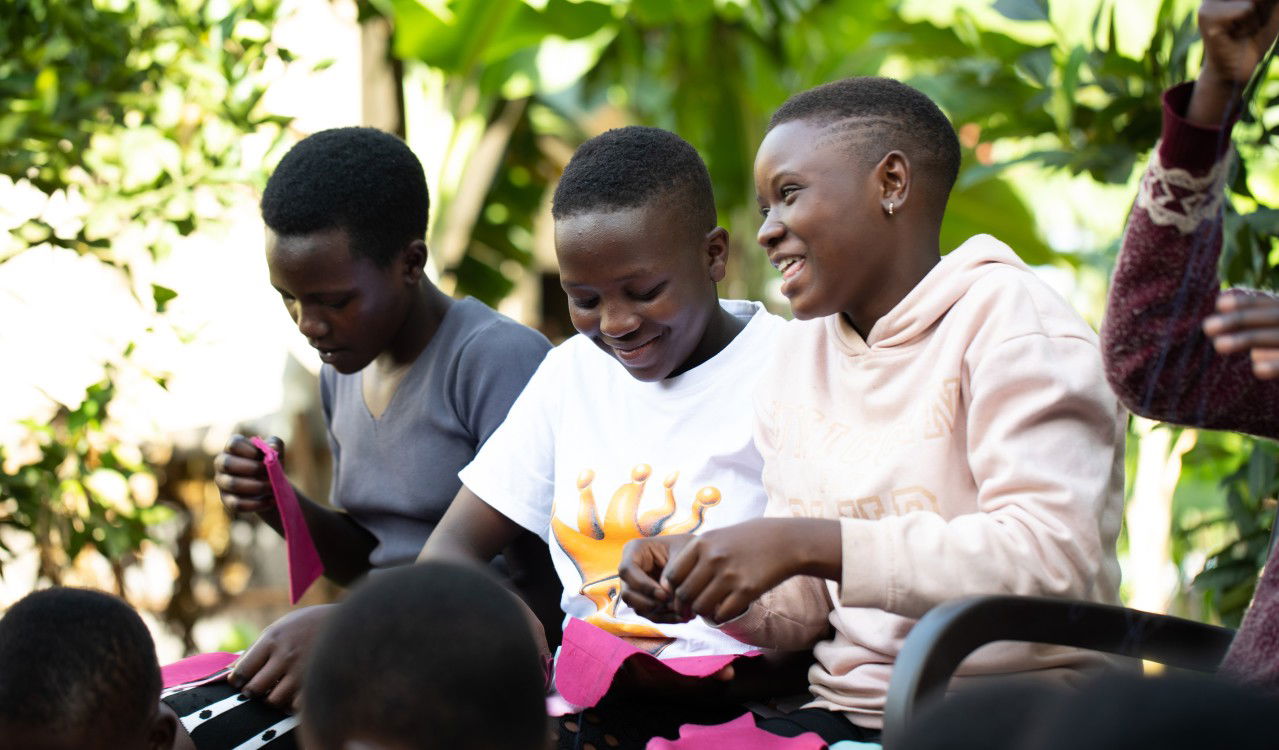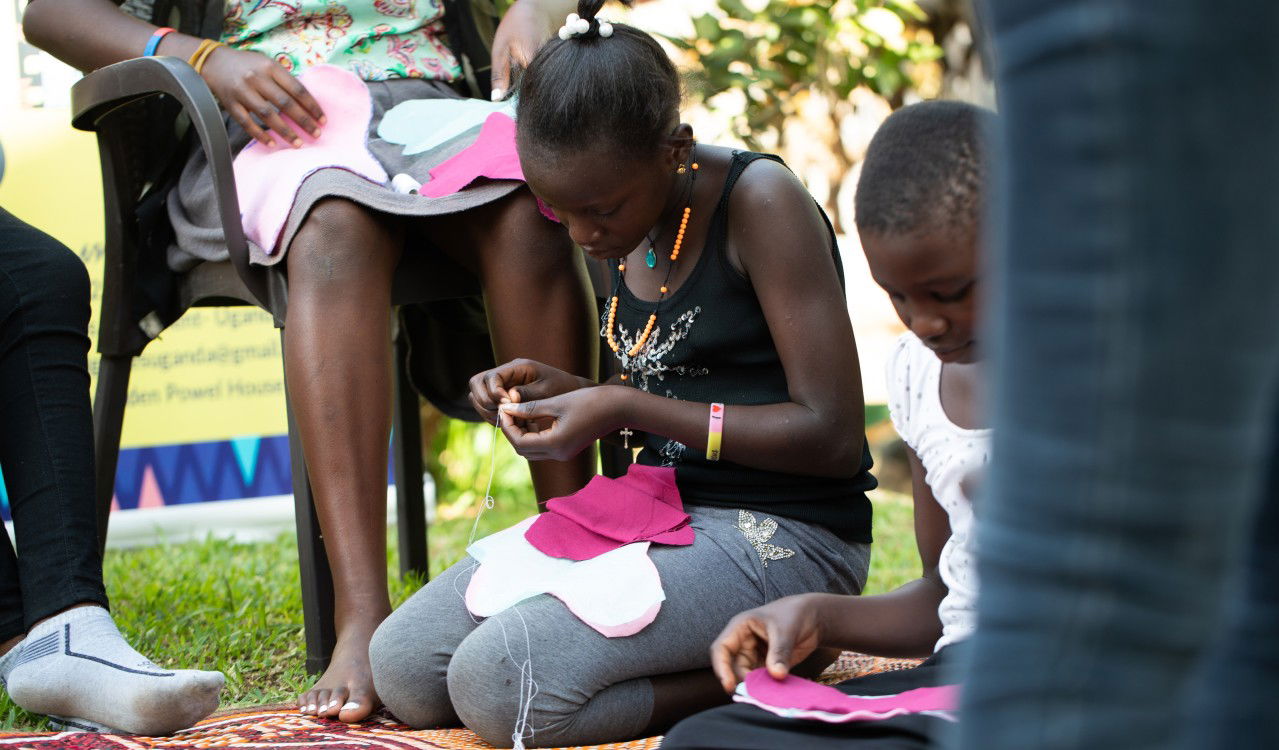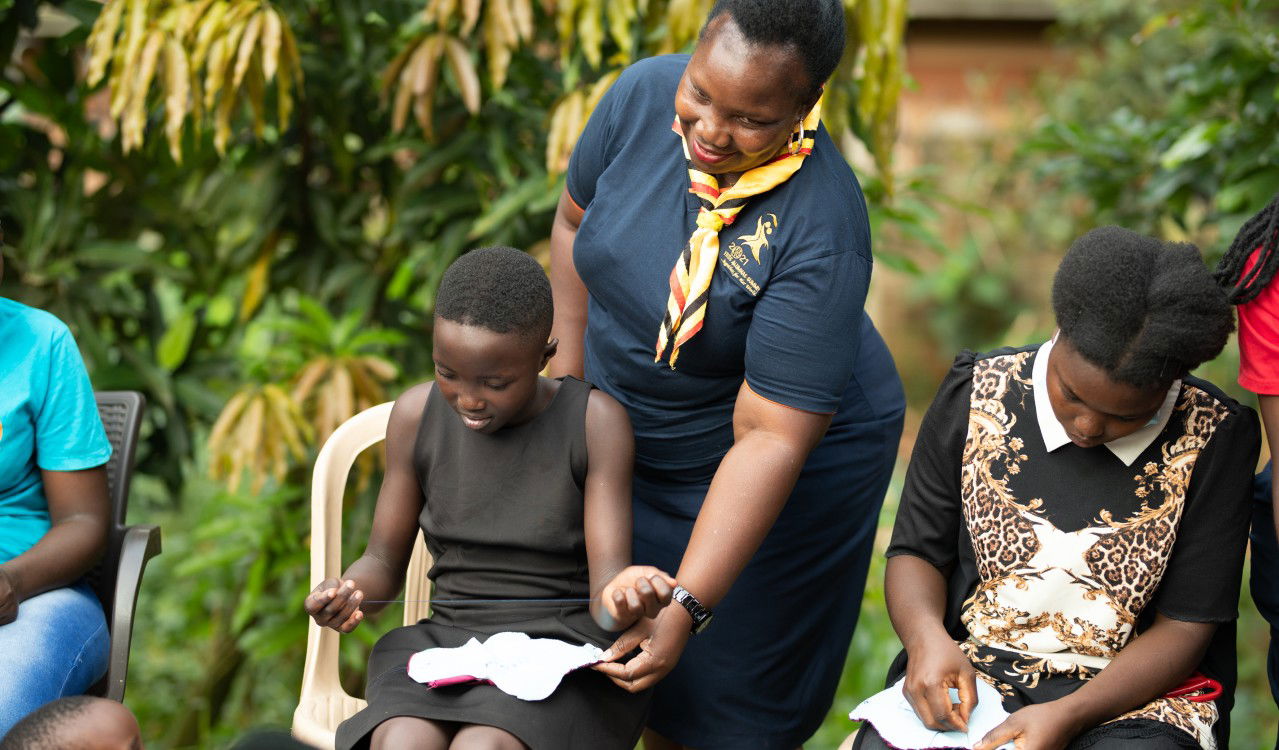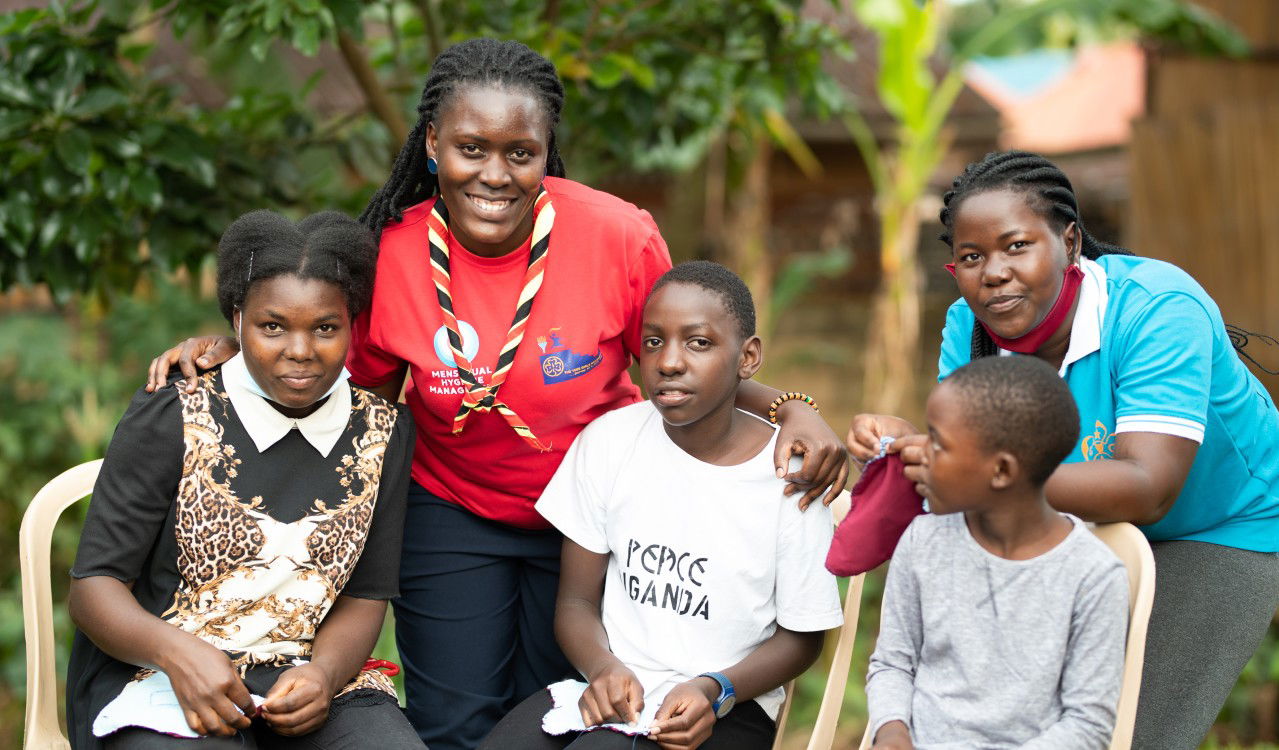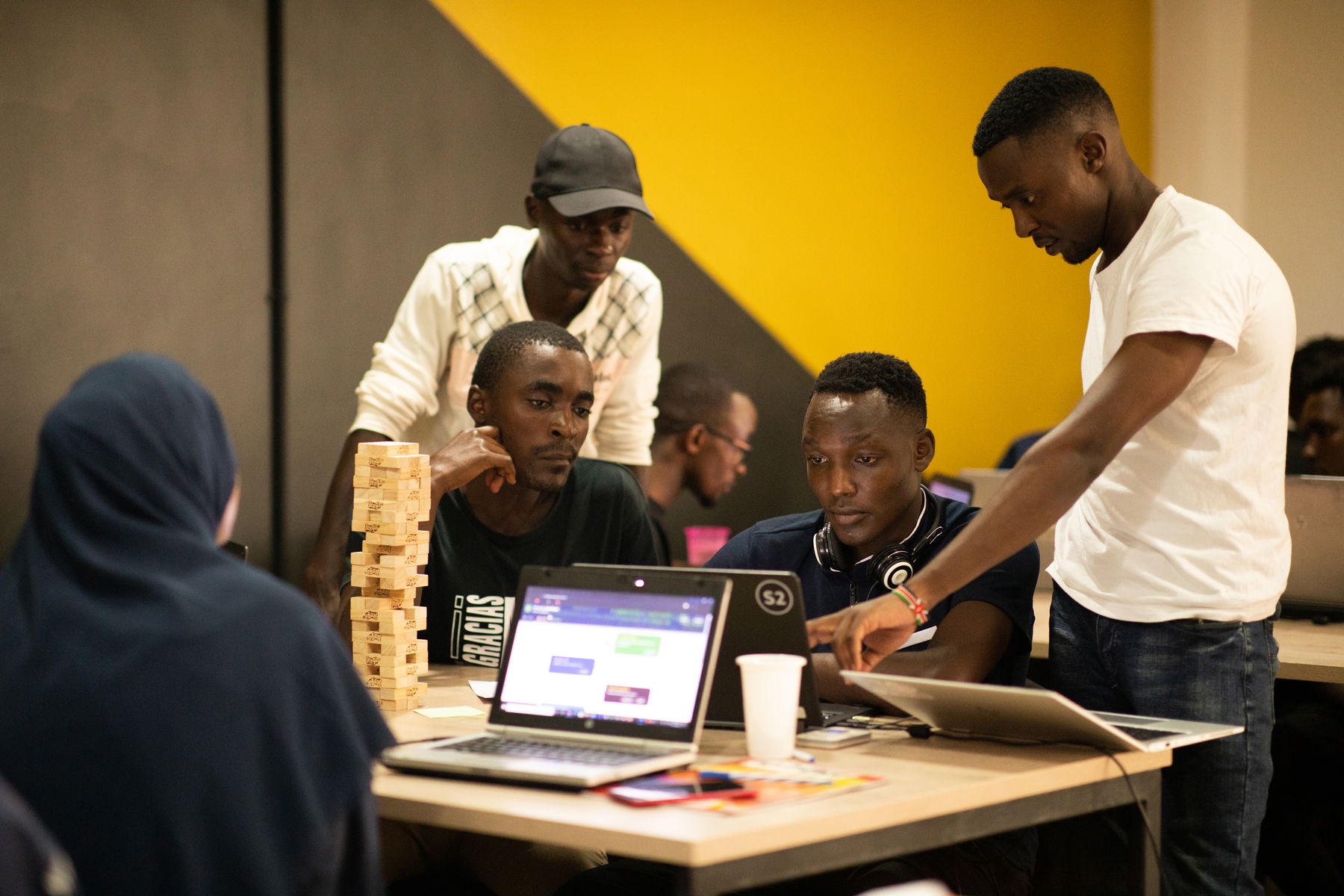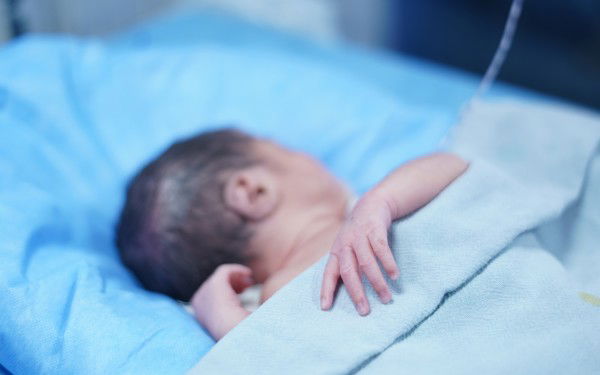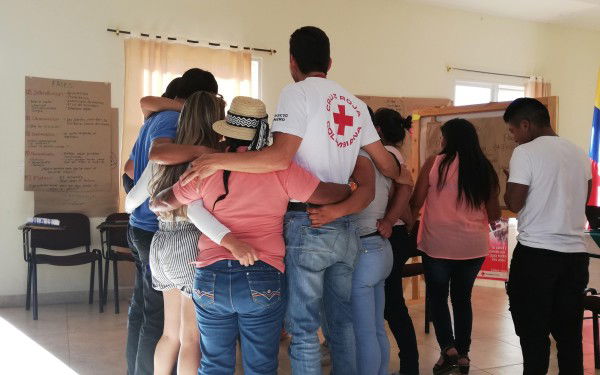Menstruation should not stop girls from getting an education



Imagine that you have to stop school the day you get your first period. That is the reality for many girls worldwide. This increases the knowledge-gap between the genders, and a practice the World Association of Girl guides and Girl Scouts is fighting to end.
Gender imbalances are found everywhere, for many reasons, and girls’ periods is one of them, says Robina Asiimwe Sentumbwe, Global Programmes Manager for World Association of Girl Guides and Girl Scouts (WAGGGS).
– In many cultures, girl-drop-out from school is the norm when they get their period. This is both due to lack of access to sanitary pads, but also due to stigma in connection with girls getting their periods.
– Lack of access to sanitary-pads and tampons is a particular challenge for girls living in poverty, and we wish to address that says Sentumbwe.
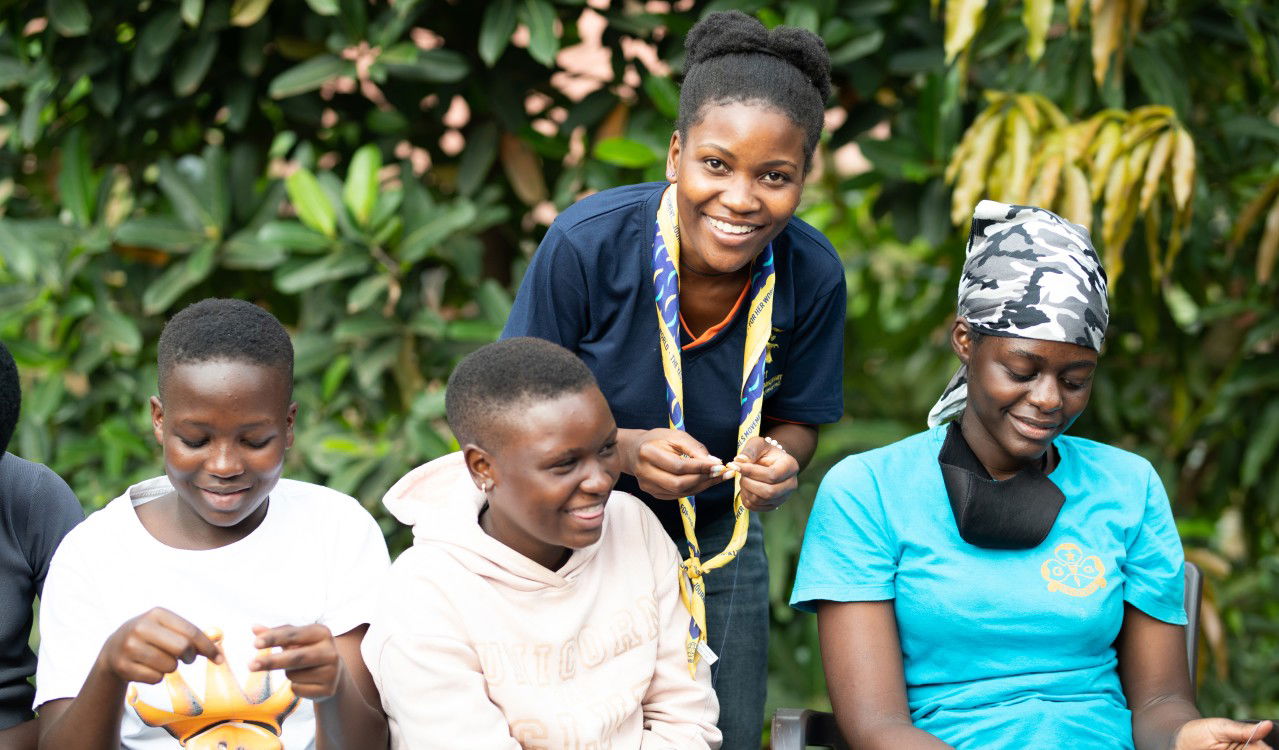
Learning from mutual experiences
The World Association of Girl guides and Girl Scouts WAGGGS is the world’s largest voluntary organization for girls, with 10 million members in 52 countries.
One of their goals is to make young women leaders through knowledge, which is done in each country. But for the last 7 years, an exchange programme has been established through Norec where they draw on the best experiences from several member-countries.
This project is called «YESS Girl’s movement», and 211 girls scouts have been exchanged between 15 countries; Burundi, Bangladesh, Ghana, Kenya, Madagascar, Malawi, Nepal, Nigeria, Rwanda, Senegal, Tanzania, Uganda, Zambia, Zimbabwe and South Africa.
Through informal and innovate educational programmes, the girls are gaining competence and self esteem so that they can make a positive change in their own lives as well as in olthers. Awareness about the challenges in connection with period/menstrual cycle is key here: the subject is called “red pride”, and makes girls proud of being instrumental in creating life and populating the world
This exchange programme is a small contribution towards gender equality,
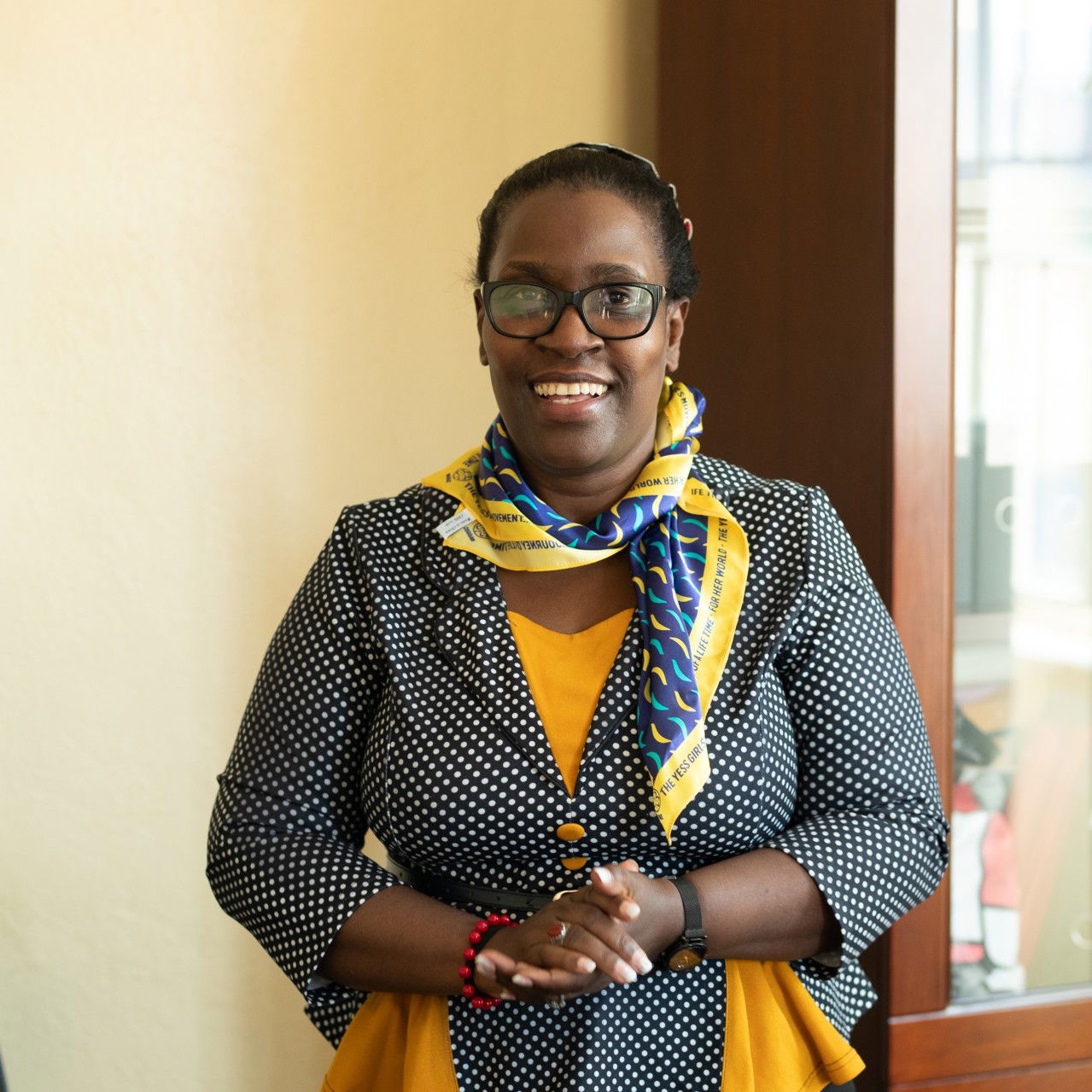
A small contribution to gender-equality
The girls are also being taught about menstrual hygiene, and how they can defy the stigma and continue in school, for instance by learning how they can make re-usable sanitary-pads,. In short-how they can be more in control of their own lives.
– This exchange programme is a small contribution towards gender equality, says Sentumbwe.
– I wish to fight menstrual stigma. Not all young girls have access to sanitary-pads. Learning how to make re-usable ones will make sure that their life can continue. My goal is to ensure that girls can make decisions concerning their own lives, says former exchange-participant Theopista Nabatanzi
The girls are also taught how to be self-confident, no matter where they are:
– From WAGGS I have learned that I am unique, I have become more confident and able to handle my surroundings. It has made me hope that one day, I can become a leader, says Priscilla Makayi Kituyi.
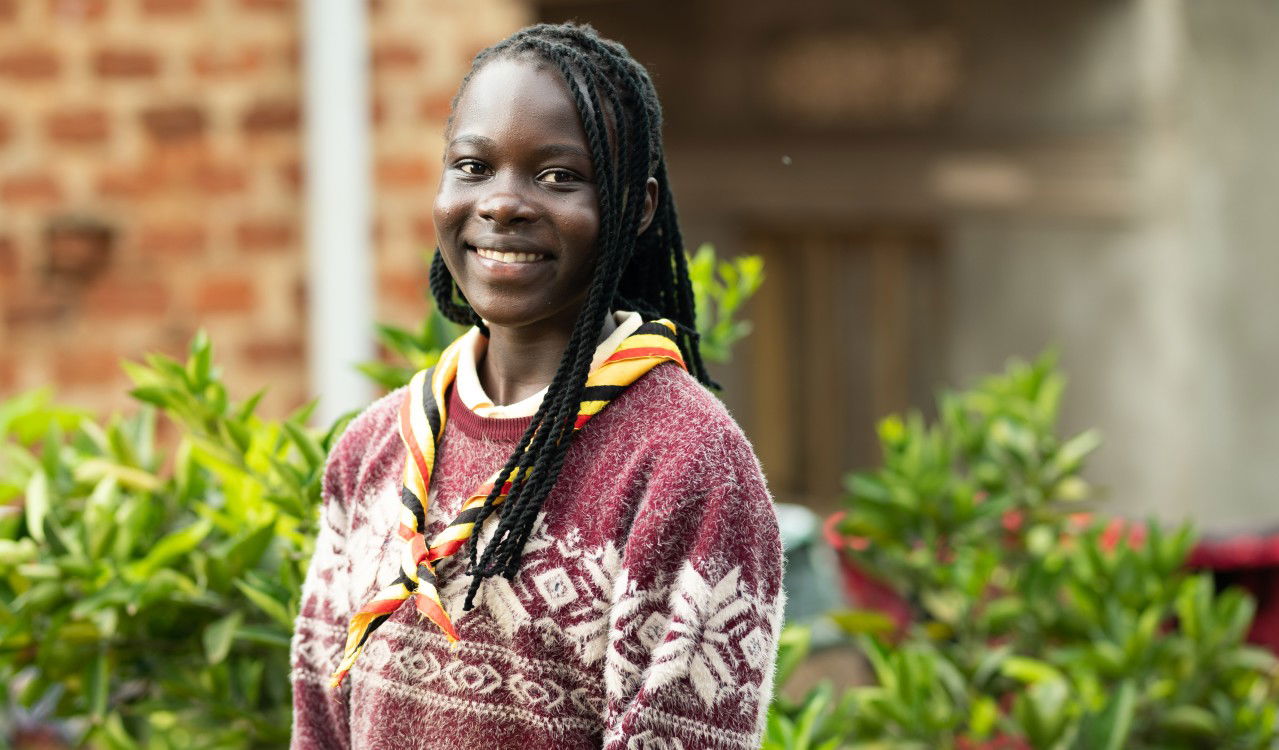
Self-confidence, knowledge, and leadership-training are the keys to success in the YESS Girl’s Movement»-exchange programme. 16 former participants have become board-members of the WAGGS-movement in their respective countries.
– The participants in the programme have gone through an impressive transformation, taking on leadership roles at high levels, says Robina Asiimwe Sentumbwe, Global Programmes Manager of WAGGS.
Since 2015, the World Association of Girl guides and Girl Scouts has had an exchange programme through Norec called «YESS Girl’s movement». A key component in the programme is to give leadership-roles to the girls. Through this challenge, they can develop themselves and grow both personally and professionally and increase the outreach to more young girls.
– We are consciously working to give the participants leadership-opportunities both during and after the exchange, says Sentumbwe
Leadership roles
This policy has led to 16 former participants having or having had memberships of their movements governing boards at national level, where they can directly influence the work because of the exposure they have had through the exchange. This is a result that WAGGS is proud of.
– The exchange has changed me for the better. I used to be shy and hated speaking in front of others. Now, I am more easy-going, both with people I know, and with strangers. I have changed the way I speak; now, I wish that people I meet will remember me for what I have taught them, says former participant Patience Makayi.
Bringing it home
The Girl Scouts uses their experiences from the exchange when they return to their home organizations, as well as at school and at home:
– We encourage them to use their experience in different ways in their local communities. It is important that they put their new knowledge into practice, says Sentumbwe
WAGGS as an organization has also learned a lot about cooperation across borders and cultural differences:
– We need partnerships in a world which is becoming smaller and smaller. Cooperation is needed to get to where we want to go, Sentumbwe concludes.
Teaches young girls that menstruation is not an obstacle
Leadership training opens doors for young females
Self-confidence, knowledge, and leadership-training are the keys to success in the YESS Girl’s Movement»-exchange programme. 16 former participants have become board-members of the WAGGS-movement in their respective countries.
– The participants in the programme have gone through an impressive transformation, taking on leadership roles at high levels, says Robina Asiimwe Sentumbwe, Global Programmes Manager of WAGGS.
Since 2015, the World Association of Girl guides and Girl Scouts has had an exchange programme through Norec called «YESS Girl’s movement». A key component in the programme is to give leadership-roles to the girls. Through this challenge, they can develop themselves and grow both personally and professionally and increase the outreach to more young girls.
– We are consciously working to give the participants leadership-opportunities both during and after the exchange, says Sentumbwe.
The exchange has changed me for the better. I used to be shy and hated speaking in front of others. Now, I am more easy-going, both with people I know, and with strangers.
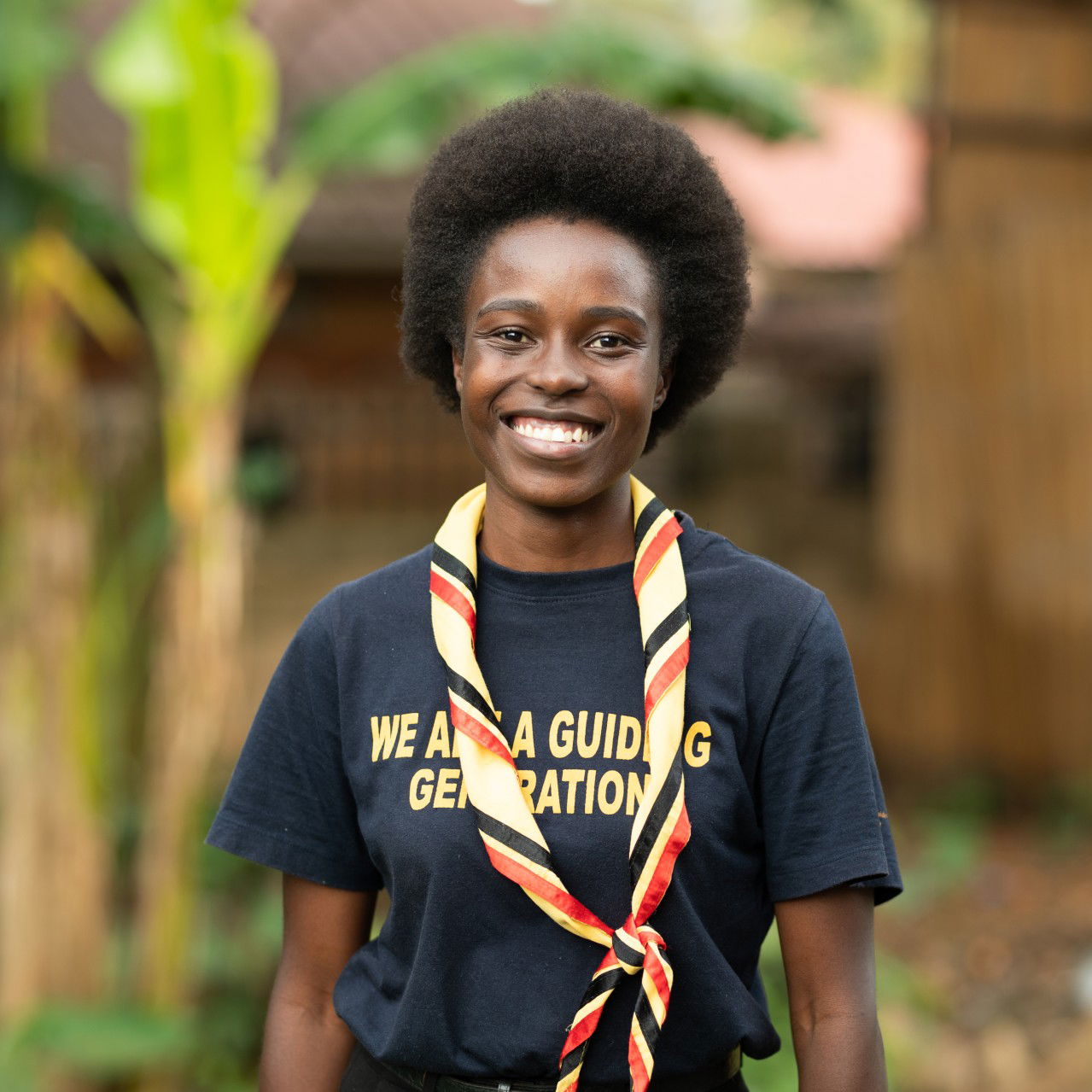
Leadership roles
This policy has led to 16 former participants having or having had memberships of their movements governing boards at national level, where they can directly influence the work because of the exposure they have had through the exchange. This is a result that WAGGS is proud of.
– The exchange has changed me for the better. I used to be shy and hated speaking in front of others. Now, I am more easy-going, both with people I know, and with strangers. I have changed the way I speak; now, I wish that people I meet will remember me for what I have taught them, says former participant Patience Makayi.
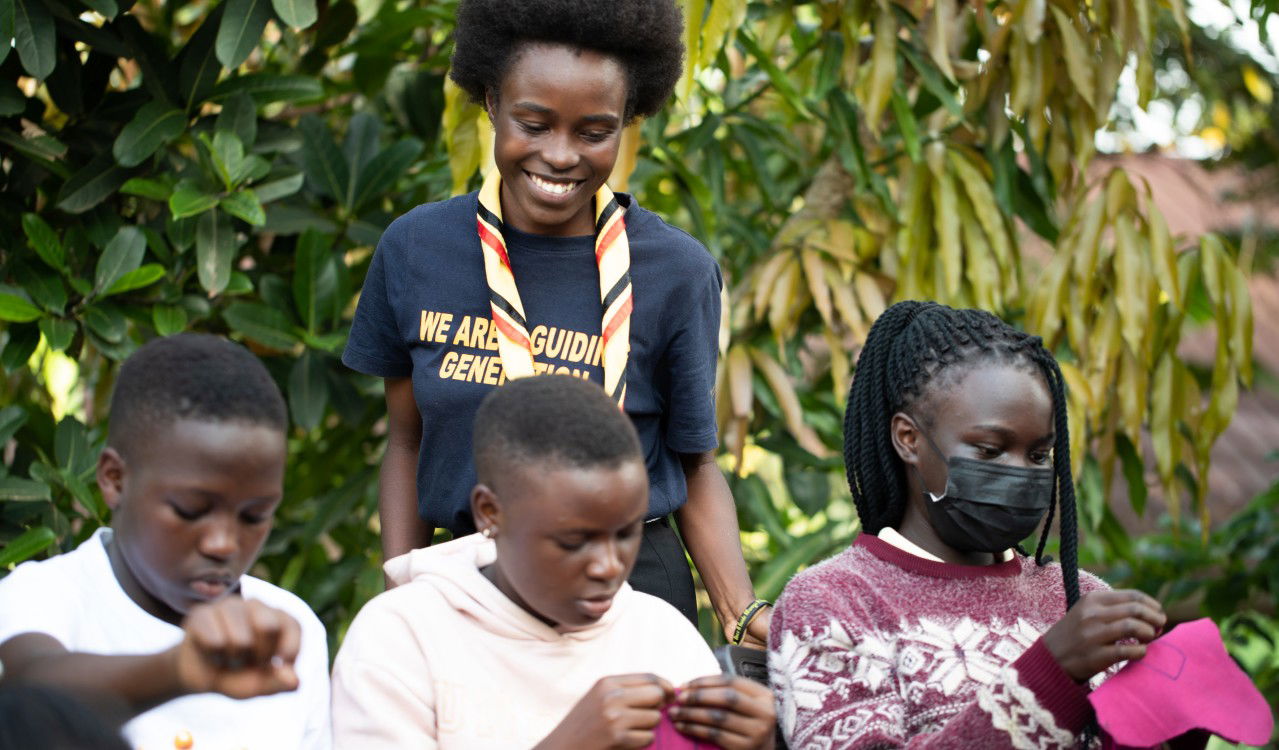
Bringing it home
The Girl Scouts uses their experiences from the exchange when they return to their home organizations, as well as at school and at home:
– We encourage them to use their experience in different ways in their local communities. It is important that they put their new knowledge into practice, says Sentumbwe
WAGGS as an organization has also learned a lot about cooperation across borders and cultural differences:
– We need partnerships in a world which is becoming smaller and smaller. Cooperation is needed to get to where we want to go, Sentumbwe concludes.



